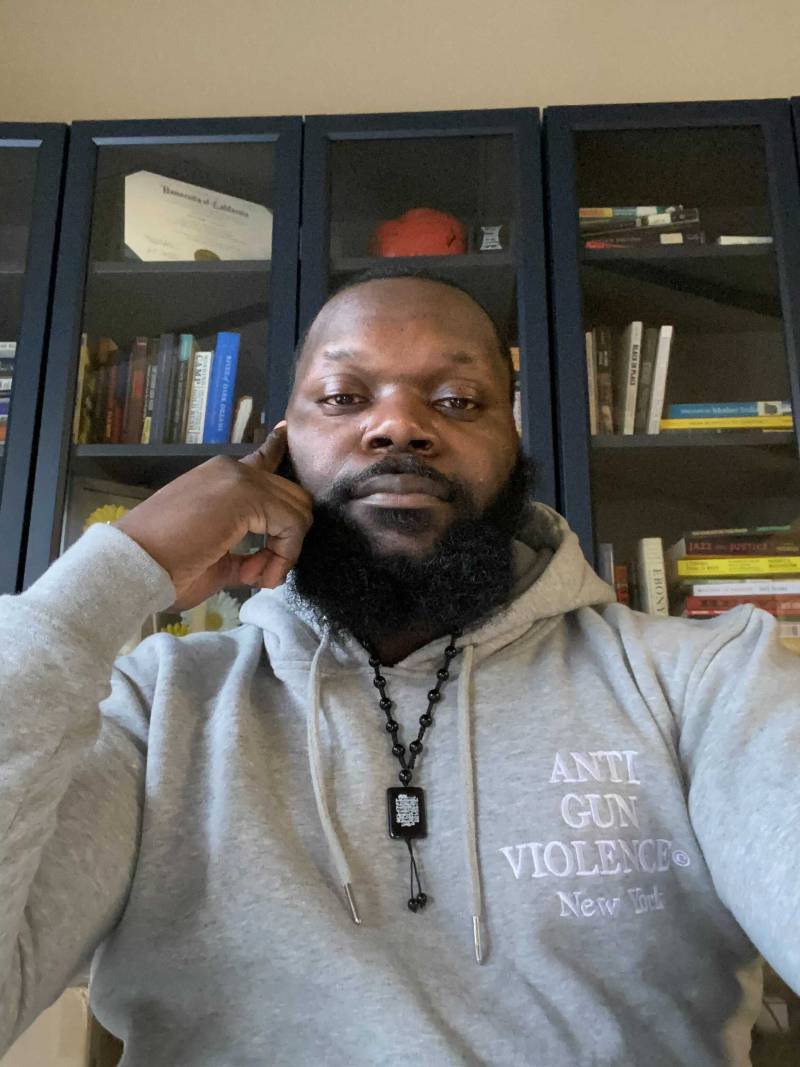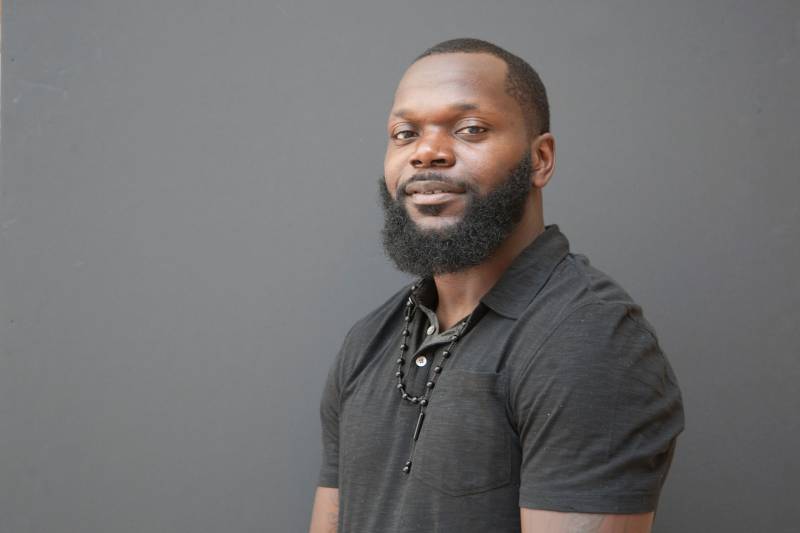Antoine Johnson stands at the intersection of hip-hop culture, HIV/ AIDS history, and the great institutions of higher learning in Northern California.
A graduate of Oakland’s Castlemont High School and Sacramento State University, Johnson is now a PhD candidate at UCSF where he’s researching the HIV/AIDS epidemic, and how the community– including a group of Black women in Oakland– responded.
Johnson is also a professor at UC Davis where he leads a course that uses hip-hop as a tool to understand larger societal issues. He says it was his love of music that eventually brought him to research the AIDS epidemic for his PhD. He was surveying songs that addressed problems like police violence and the crack epidemic, but Johnson says he wasn’t finding too many tracks that talked about HIV/ AIDS. So he began researching, and hasn’t stopped.
This past year, after the police killings of George Floyd and Breonna Taylor sparked a heightened awareness around institutionalized racism, Johnson and a couple of colleagues compiled a syllabus called, “A History of Anti-Black Racism in Medicine,” for people who are interested in learning more about the intersection of healthcare of Black history.
On this episode, we discuss Johnson’s love for learning and teaching, passion for hip-hop, and how his highly important research into the HIV/ AIDS epidemic of the ’80s and ’90s is still extremely relevant to this day.

Below are lightly edited excerpts of my conversation with Antoine Johnson.
Pen: What are you pursuing with your PHD ?
Antoine: My dissertation looks at HIV and AIDS among Black people in the Bay Area and ways that racism, specifically state sanctioned violence through underemployment, poverty housing insecurity, and inadequate health care contributes to Black people’s disease susceptibility.
Antoine: One of the chapters I wrote on was about a sex workers organization called CAL-PEP, California Prostitutes Education Project. They were created in 1984. They wanted to highlight the way that Black women, in particular, were affected by HIV and AIDS, and how that differed from Black men, which differed from white men.
Antoine: At the time, AIDS was seen as a gay white disease. And that’s the way that the media covered it. That’s the way that health professionals responded to it and the way that politicians responded to it as well.
Antoine: And the thing was, sex workers were being ostracized for carrying the disease. But they were pointing out, you know, the vast majority of our customers are married white men, but they don’t receive the same criticism and public scrutiny that we do. So that’s the intersectional lens that I approach that chapter from.
Antoine: The CAL-PEP chapter took a while to develop because… they’ve been blamed so much that they stopped trusting and working with, journalists, and epidemiologists, people from the health field, so it literally took me almost a year just to get any information from them to hang out with them.
Antoine: You know, to be in conversation with the founder, shout out to Gloria Lockett and their great people, you know, but it’s like we don’t want people coming in using our names and our info and then slandering us. Being from the Town, I’m not about to disrespect people who were out here. They’re sex workers already, they’re negatively perceived, so I need to make sure that I humanize them as best I can.

Rightnowish is an arts and culture podcast produced at KQED. Listen to it wherever you get your podcasts or click the play button at the top of this page and subscribe to the show on NPR One, Spotify, Apple Podcasts, TuneIn, Stitcher or wherever you get your podcasts.


